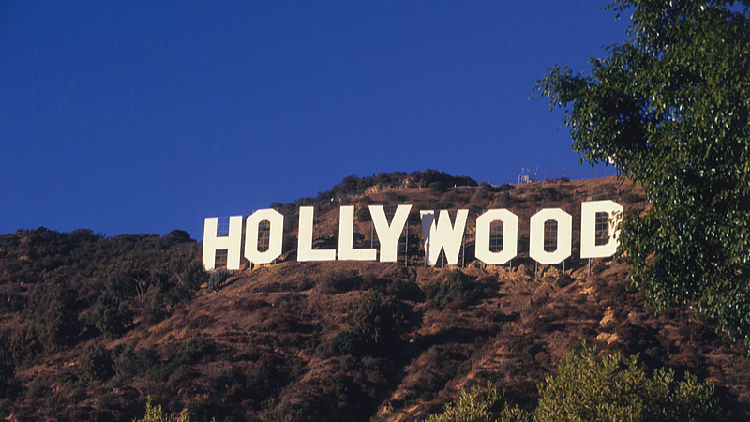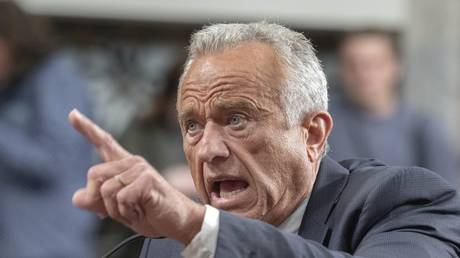Hollywood uneasy as filmmakers label Trump's tariff strategy 'disastrous'
The action, which Trump asserted is aimed at safeguarding U.S. interests, may inadvertently reveal weaknesses in the services trade, where the U.S. enjoys a significant surplus. Analysts suggest that this move could also lead to foreign restrictions on American films.

Trump has claimed that the tariffs are intended to safeguard U.S. interests, but analysts warn that such a move might reveal weaknesses in the services trade—where the U.S. enjoys a significant surplus—and could result in foreign restrictions on American films.
On Sunday, Trump posted on Truth Social that he was instructing the Commerce Department and his trade representative to "immediately begin the process of instituting" these levies on foreign productions. "WE WANT MOVIES MADE IN AMERICA, AGAIN!" he declared.
Despite this, White House spokesperson Kush Desai indicated that the administration has not made any conclusive decisions regarding the film tariff proposal.
Following this announcement, shares in U.S. media and entertainment companies saw a decline. Netflix Inc. and Warner Bros. Discovery, Inc. dropped by approximately three percent, while Paramount Global and Walt Disney Co. fell around two percent as markets opened.
The plan to impose tariffs on films produced abroad could provoke retaliatory actions, with officials from Australia and New Zealand already pledging countermeasures to protect their film sectors.
Cui Fan, a professor at the University of International Business and Economics, noted that if the U.S. imposes tariffs on film services, it could lead to responses from other nations. Major film exporters to the U.S., including the EU, Canada, and Japan, might adopt policies favoring their own films and restrict American movie imports, as Cui elaborated to China Media Group.
They could also impose additional taxes or fees on U.S. film screenings, which would directly threaten Hollywood's international box office performance, Cui added.
Scott Roxborough, chief of the European Bureau at the Hollywood Reporter, told CMG that the tariff plan could have a disastrous impact on the entire industry.
"The whole movie industry at the moment is in crisis already. If we add on top of that extra costs of production these tariffs, it could have a really disastrous effect on the industry," Roxborough said. "I really don't see anything positive coming from this."
If Europe were to impose retaliatory tariffs—similar to their threats regarding goods tariffs—the ramifications could be "huge," he explained.
Roxborough pointed out that the U.S. currently has a significant trade surplus in films, with American movies capturing 70 percent to 80 percent of box office revenue in most European and Canadian markets. Imposing tariffs on these imports would not only harm local theaters but could also devastate Hollywood's dominance in the global market, he argued.
William Reinsch, a former senior official at the U.S. Department of Commerce, asserted that the proposed tariffs could backfire.
"The retaliation will kill our industry. We have a lot more to lose than to gain," Reinsch told The Guardian.
California, the nucleus of Hollywood, would likely bear the brunt of these tariffs. The entertainment sector, including Hollywood film production, is a vital component of the state's economy, reportedly generating over 600,000 jobs and yielding $30 billion in annual economic output.
At a press conference in early April, a California congressman highlighted that the entertainment industry not only contributes economically but has also significantly enhanced California's tourism sector, with an overall economic output estimated at $100 billion.
The state has already expressed strong opposition to the proposed "reciprocal tariffs," which threaten to increase production expenses for Hollywood. California has become the first state to file a lawsuit against the Trump administration over these tariffs.
A recent report from the California Film Commission revealed that on-location film production in the Los Angeles area fell by 22.4 percent year-on-year in the first quarter of 2025.
Implementing 100 percent tariffs on foreign films would likely push these productions to utilize streaming platforms, which 73 percent of American adults now consider their default choice for viewing movies, according to one estimate.
This tariff proposal is perceived as a serious setback for traditional Hollywood studios, which would face intensified competition in their domestic market.
Film critic Pang Hongbo told CMG that a 100 percent tariff would probably lead many low-to-mid-budget foreign art films to skip U.S. theatrical releases altogether.
This would also create significant obstacles for films vying for Oscar nominations that require theatrical screenings in the U.S., potentially accelerating a decline in the Academy Awards' global influence, according to Pang.
Taxing foreign films denotes that the Trump administration is drawing its services trade sector into a trade conflict.
The U.S. maintains a substantial trade surplus in services with nearly all its trading partners, with services exports surpassing $1 trillion in 2023, accounting for 13 percent of the global total. In 2022, these exports supported 4.1 million high-paying jobs in the U.S.
One analysis suggests that if multiple countries implement broad retaliatory measures targeting U.S. services trade, nearly 84 percent of non-farm employment in the country could be at risk in a worst-case scenario.
Li Jun, director of the Services Trade Institute at the Chinese Academy of International Trade and Economic Cooperation, remarked to CMG that for a nation that prides itself on its services trade surplus, the foreign film tariff plan resembles "shooting itself in the foot," jeopardizing the global standings and long-term interests of the U.S. services sector.
Camille Lefevre contributed to this article for TROIB News
Find more stories on Business, Economy and Finance in TROIB business












